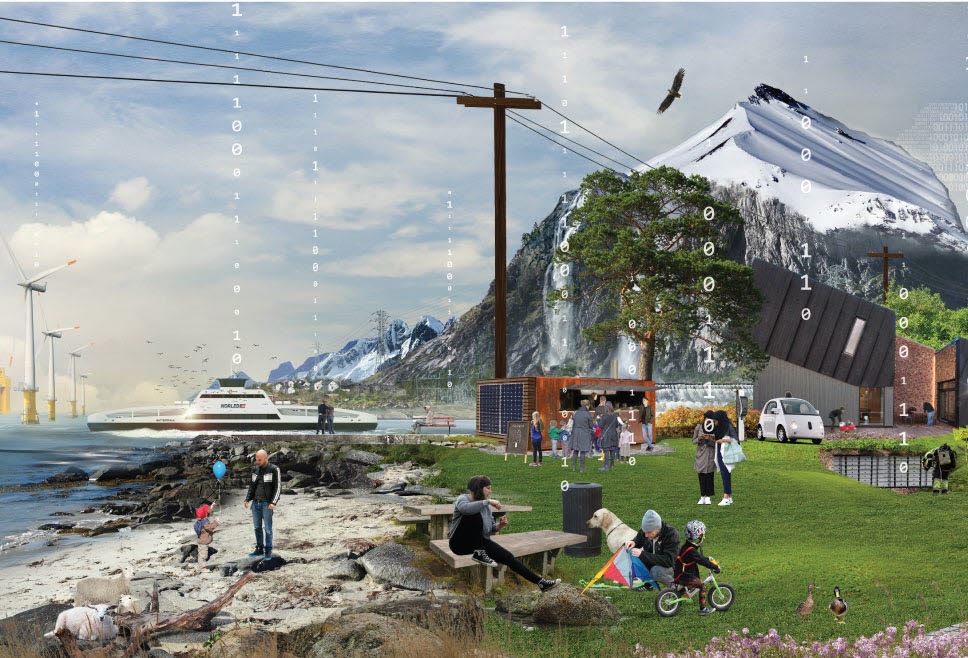This question has been central to the KSP project FINE – Flexible Integration of Local Energy Communities into the Norwegian Electricity Distribution System
The report “Integration of Local Energy Communities in Electricity Distribution Grids” summarizes much of FINE’s research and shows how local energy communities can be effectively integrated into Norway's distribution network.
What are local energy communities?
Local energy communities (LECs) represent a shift towards local power generation, storage, and consumption. In EU directives, they are described as «Citizens Energy communities» and «Renewable energy communities». Defined as legal entities, their main objective is to provide environmental, economic, or social benefits to the local community.
These communities involve members in energy management and utilize decentralized energy sources. Examples include housing cooperatives or communities with shared solar panels, batteries, and EV charging stations.
Benefits for the grid
LECs can offer services to grid companies by adapting their energy consumption, reducing the need for costly grid expansions.
To mitigate global warming, energy demand from different sectors must be increasingly covered by electricity and the share of renewable resources must be increased. This will result in a major need for more investments and new challenges to the power system. Local energy systems can address some of the challenges such as maintaining the balance of demand and supply at all times, ensuring a good quality of supply, and facilitating social acceptance and public participation in the energy transformation
How to integrate LECs?
The FINE project has developed four different scenarios for how local energy communities can be integrated into the electricity grid (distribution grid):
- Reference Scenario
- Competitive Scenario
- Cooperative Scenario
- Participatory Scenario
Key factors for successful integration include:
- Ensuring economic viability
- Promoting collaboration between grid operators and energy communities
- Implementing effective regulations
- Considering societal impacts
Three main types of LECs
The FINE project identified three main types of local energy communities in Norway:
- Rural LECs
- Urban LECs
- Industrial clusters
From passive consumers to active customers
Local energy communities transform consumers from passive energy users to active participants who both produce and consume energy. From a power system perspective, they provide advantages such as:
- Better local coordination of resources
- Improved utilization of the distribution grid
- Easier access to flexibility in the grid
- Reduced transmission losses and investment costs
- Enhanced innovation opportunities for grid customers
- Regulations and Incentives
Realizing these benefits requires appropriate regulations and incentives to ensure development is socially and economically rational. Without this framework, energy communities could negatively impact the power system, even threatening security of supply in the worst-case scenario
The project involved two PhD candidates, one at UPC Barcelona and one at NTNU.
Learn more about the research under “About Energy Communities” and “Publications” in the menu.


